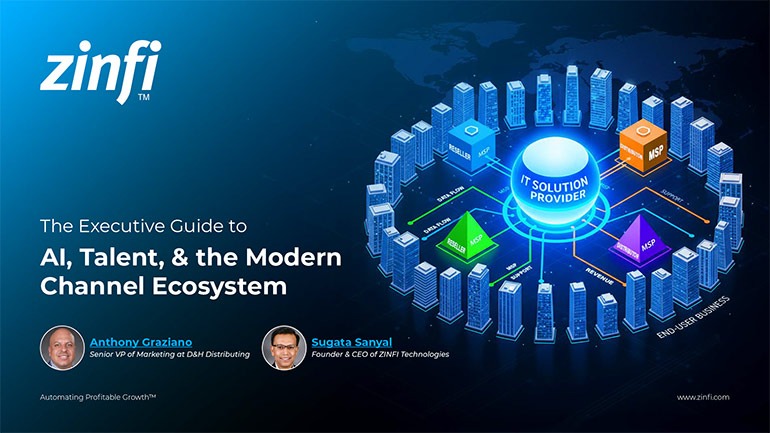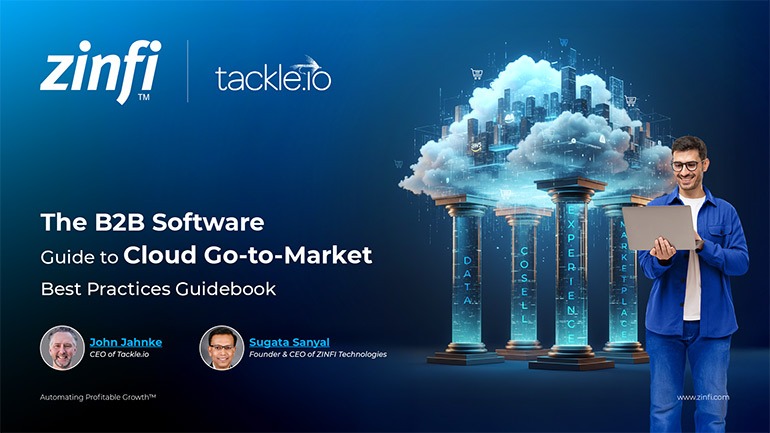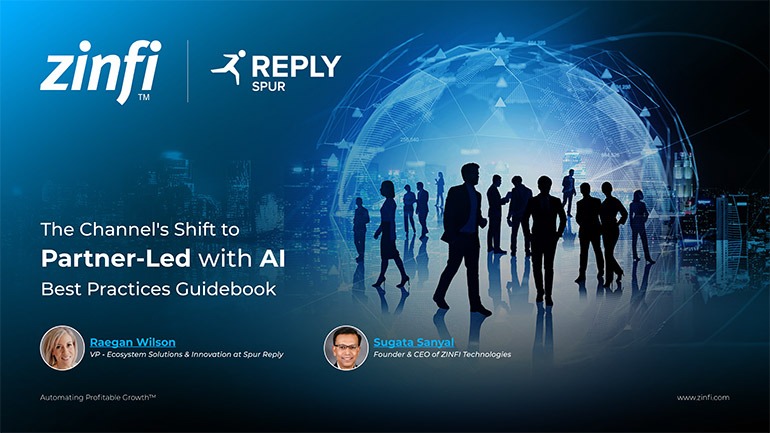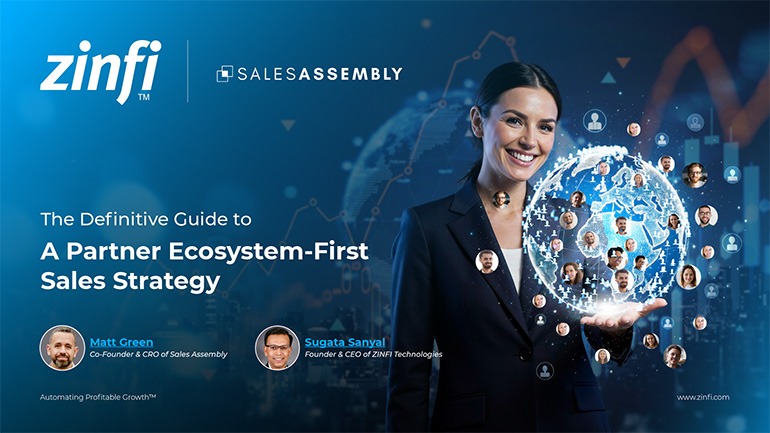Best Practices Articles

Why Channel Marketing Automation Needs Concierge Support to Succeed
As vendor organizations trying to sell through the channel deploy channel marketing automation platforms to enable their partners to drive demand from their prospect and customer base, vendors may become frustrated by the lack of adoption of these state-of-the-art tools. Why don’t more partners use channel marketing automation platforms to take advantage of the various tools and assets vendors provide? In other articles we have discussed in detail a variety of factors that may be at play in the lack of adoption among partners (see, for example, Why Partner Marketing Fails Most of The Time), but in this article we will focus on one specific solution that in many cases can solve the problem.
First, let’s quickly define what a channel marketing automation platform is and list its basic components. Then we will explore why partners do not use many of these tools and why broader adoption is always a challenge. A state-of-the-art channel marketing automation platform should be able to address both inbound (e.g., search, social and web syndication) and outbound (e.g., email, telemarketing and microsite) marketing tactics. The channel marketing automation platform should also be able to provide different campaigns to different groups of partners so that only relevant campaigns are available to individual partners, depending on their profile. And finally, lead management will play a central role in driving the marketing activities forward so vendors can truly track return on investment from these integrated tactics.
The challenge, however, is this: When a vendor launches a channel marketing automation platform, after the initial excitement the adoption typically drops quite dramatically over a period of time. What are the primary reasons for such a failure and what can be done about it? To answer, let’s first identify the most common types of failure that prevent widespread adoption of a channel marketing automation platform.
- Awareness – If you have a broad channel with a few thousand partners, chances are the majority of them are not aware of your channel programs and tools. So, if you are trying to deploy a channel marketing automation platform, you need to focus on driving awareness first. In order to do this you need marketing concierge capabilities that will drive integrated campaigns (search, social, email, webinars, etc.) to drive awareness among your partner base. It is always good to start with the most valuable partners (MVPs) first and then work your way down to your broader list in some sort of a logical fashion.
- Engagement – Driving awareness is one thing; driving engagement is another. It is essential, once your partners are aware of your channel marketing automation platform, to make sure your concierge infrastructure engages the partner through proper training. This is where the partners should not only learn how to use the tools by themselves, but also understand how to pick the right campaign for their market segment and how to drive prospect and buyer engagement. This is a very important step for the success of your channel marketing automation platform.
- Execution – Once you have crossed the first two major hurdles of making partners aware of how your channel marketing automation platform can help and then showing them how the platform can positively impact their sales pipeline, the key next step is to help them execute campaigns. Since partners are busy, you have to provide help on demand so they can reach out via email, chat or phone during business hours to get support, but also get support during off hours using online help and other means to educate themselves. This support needs to be available locally in the various countries where you are providing the channel marketing automation platform.
- Rewards – One great way to drive awareness and engagement is to celebrate success. We talk about this a lot because it is incredibly powerful. If partners cannot see how the channel marketing automation platform is benefiting other partners, many may not engage at all—despite a high level of awareness. Giving out awards, celebrating success and promoting best practices are critical activities for driving adoption of your channel marketing automation platform.
- Repeat engagements – Once you have successfully engaged a partner to go execute campaigns and programs using your channel marketing automation platform, the next step is to make sure they repeat those activities on their own (or with the help of your concierge team) quarter after quarter. Marketing is not an event—it’s a process. If your partners are selling to midmarket and enterprise prospects, it is highly unlikely that one simple marketing tactic such as email, events or telemarketing will drive results on its own. That’s why it’s so important to put together a multi-quarter campaign plan and drive execution successively. The more partners that do this globally, the bigger your partner-led pipeline is going to be.
- Concierge competency development – This is your front line to your partner awareness, engagement and execution support. It is very important to make sure you have a multi-level concierge support infrastructure, and appropriate partner-facing competencies. When it comes to supporting your channel marketing automation platform successfully, you will need to make sure there are three core competencies in place when it comes to hiring, training and growing your concierge teams: customer service skills, technical marketing abilities and organization skills. We will explore these competencies in detail in a separate article.
- Concierge process automation – Automating your channel marketing processes includes not only putting together the channel marketing automation platform and the right structure around people, but also an automation capability that allows you to streamline your concierge engagement process with your partners. This is somewhat similar to a technical support infrastructure, but it’s different in that you probably need more collaboration tools to keep track of changes to what the partners are using from a marketing services perspective, such as marketing collateral, list services, and so on.
- Concierge performance tracking – In much the same way you manage your other team members, you will need to manage your concierge team to make sure they are hitting their onboarding and execution targets. It’s one thing to put together a group of people to dial out to a partner, but it’s an entirely different matter to truly optimize the performance of this organization to drive top- and-bottom line results and improve partner satisfaction. We will discuss how to do this in a separate article.
Best Practices Guidebook
 Modernizing Channel Marketing: AI and Ecosystem Enablement Best Practices
Modernizing Channel Marketing: AI and Ecosystem Enablement Best PracticesDownload for FREE
 The Channel’s Shift to Partner-Led With AI Best Practices
The Channel’s Shift to Partner-Led With AI Best PracticesDownload for FREE
 Hyperscalers, ISVs, and AI: Shaping the Future of B2B Software Distribution
Hyperscalers, ISVs, and AI: Shaping the Future of B2B Software DistributionDownload for FREE
 Definitive Guide to a Partner Ecosystem-First Sales Strategy
Definitive Guide to a Partner Ecosystem-First Sales StrategyDownload for FREE
 The Partner-Led Digital and AI Transformation Best Practices
The Partner-Led Digital and AI Transformation Best PracticesDownload for FREE
 Startup Talent Recruitment: Hiring Missionaries, Not Mercenaries
Startup Talent Recruitment: Hiring Missionaries, Not MercenariesDownload for FREE
 The Future of Partner Relationship Management with AI in Partnerships
The Future of Partner Relationship Management with AI in PartnershipsDownload for FREE
 Cybersecurity for the 99%: Strategies from the Frontline
Cybersecurity for the 99%: Strategies from the FrontlineDownload for FREE
 Mastering Partner Relationships: A Strategic Approach to Business Growth
Mastering Partner Relationships: A Strategic Approach to Business GrowthDownload for FREE
 Mastering Partner Relationship Management: Keys to SaaS Channel Success
Mastering Partner Relationship Management: Keys to SaaS Channel SuccessDownload for FREE
 Navigating the AI Revolution: Guide for Partners in the Microsoft Ecosystem
Navigating the AI Revolution: Guide for Partners in the Microsoft EcosystemDownload for FREE
 Mastering the Modern Buyers Journey: Sales Leader’s Guide to AI & Engagement
Mastering the Modern Buyers Journey: Sales Leader’s Guide to AI & EngagementDownload for FREE










